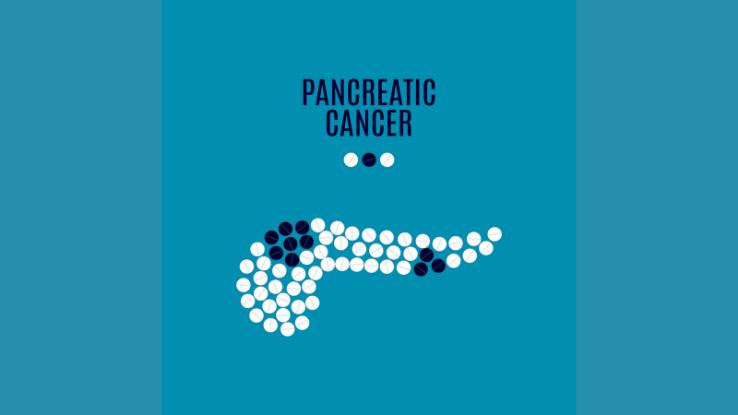If Youve Had Cancer Before Can You Get Cancer Again
Pancreatic Cancer: Everything You Demand to Know

The pancreas is a bodily organ that few people think about. In fact, most people don't even know what it does. Despite this, pancreatic cancer is among the deadliest types of cancer, which is why it's extremely important to know and recognize the typical signs and symptoms of this disease.
What Is Pancreatic Cancer?
As the name suggests, pancreatic cancer is a type of cancer that first develops in the tissues of the pancreas. The pancreas is an organ located in the right side of the abdomen behind the lower part of the breadbasket. This organ's purpose is to secrete enzymes that help your body assimilate nutrient. It too secretes hormones that are responsible for regulating your claret glucose levels.
Pancreatic cancer is oft associated with a very poor prognosis because it is rarely detected in its early on stages and the signs and symptoms of the disease aren't ever apparent until it's too late. Additionally, it is a very aggressive course of cancer that spreads rapidly, making it difficult to treat. Unfortunately, the incidences of pancreatic cancer continues to rise.
Types of Pancreatic Cancer
In that location are many types of pancreatic cancer, merely the majority of cases can be categorized into two main types. Based on the type of cells from which the cancer originates, most patients exhibit ane of these types of pancreatic cancers:
Exocrine (Nonendocrine) Pancreatic Cancer: This type of pancreatic cancer originates from the exocrine cells that form the exocrine gland and pancreatic ducts. The exocrine gland produces the enzymes that help break down nutrient, whereas the pancreatic ducts comport these enzymatic juices to the common bile duct. There are various types of exocrine pancreatic cancer. The almost mutual type is adenocarcinoma or ductal carcinoma, which affects the pancreatic ducts. Other more rare types of exocrine pancreatic cancer include squamous cell carcinoma, adenosquamous carcinoma, and colloid carcinoma.
Neuroendocrine Pancreatic Cancer/Pancreatic Neuroendocrine Tumors (PanNETs): This type of pancreatic cancer is less common and occurs when tumors develop from the cells of the pancreatic endocrine gland, which is responsible for producing and secreting the hormones that regulate blood glucose levels (i.due east. glucagon and insulin).
Symptoms Associated With Pancreatic Cancer
1 of the most dangerous things about pancreatic cancer is that tumors in the pancreas can ofttimes grow for some fourth dimension without any symptoms. However, there are a few indicators that pancreatic cancer may be developing, including:
- Night-colored urine
- Pale-colored stools that bladder
- Nausea
- Vomiting
- Loss of ambition
- Bloating
- Indigestion
- Diarrhea
- Unintentional weight loss
- Jaundice (peel or eyes that become yellowish in color)
- Hurting or discomfort in the upper abdomen
- Dorsum pain
- Blood clots
- Fatigue
These symptoms may exist indicators of whatever number of diseases, so it's important to see a dr. if y'all detect that you are experiencing any of these symptoms.
Causes & Risk Factors
Pancreatic cancer occurs in response to genetic mutation in the cells of the pancreas. The mutations allow the cells to carve up and grow at unusually rapid rates. In addition, the mutations let the cells to stay live under conditions in which normal cells would die. Often, the accumulating cells volition plow into a mass that forms a tumor.
At that place are several factors that tin increase a person's risk for pancreatic cancer, including:
- Historic period: The take a chance of pancreatic cancer increases with historic period. This is particularly true once a person surpasses the age of 50.
- Assigned Sex at Birth: Pancreatic cancer is slightly more mutual in people assigned female at birth.
- Race: Blackness folks are more susceptible to developing pancreatic cancer than people of other races.
- Family History and/or Genetics: Having a family history of pancreatic cancer increases your risk for the affliction. In addition, the presence of certain genetic variations/mutations or syndromes, including BRCA1/2 or PRSS1 cistron mutations, Lynch syndrome, and Peutz-Jeghers syndrome, increases a person's run a risk of pancreatic cancer.
- Tobacco Use: Tobacco utilize is linked to an increased risk of pancreatic cancer.
- Other Wellness Weather condition: People with pancreatitis (chronic inflammation of the pancreas) or diabetes and those who are overweight or obese have a higher risk of pancreatic cancer.

Pancreatic Cancer Diagnosis
Pancreatic cancer is very hard to diagnose because the pancreas is located backside other organs deep inside the body. However, if an private is suspected of having the disease, several diagnostic tests can be performed.
Various imaging techniques, including computerized tomography (CT) scan, positron emission tomography (PET) scan, magnetic resonance imaging (MRI), ultrasound, and endoscopic retrograde cholangiopancreatography (ERCP), are frequently used to determine if a pancreatic tumor is present. Blood tests for circulating tumor markers as well as liver function tests and chemistry panels can also assist diagnose pancreatic cancer. However, obtaining a biopsy to written report the bodily tissue is the most accurate method for diagnosing pancreatic cancer.
Are There Ways to Forbid Pancreatic Cancer?
In that location are no proven means to foreclose pancreatic cancer completely, but many people tin reduce their risks past taking the following steps:
- Stopping the use of tobacco products
- Maintaining a healthy weight
- Eating a nutrition with lots of fruits, vegetables, and whole grains
- Exercising regularly
Prognosis & Treatment
Sadly, pancreatic cancer is one of the most deadly types of cancer. Approximately 95% of patients volition non survive five years past diagnosis. Additionally, patients with pancreatic cancer that cannot be surgically removed or that has spread to other parts of the body are by and large given one year or less to live. Considering of the poor prognosis of the disease, some people do not undergo intensive handling in one case they are diagnosed. However, some types of pancreatic cancer may be treatable with the following methods:
- Surgery: When possible, doctors will effort to remove as much of the cancer from the pancreas every bit possible. Ane mutual surgical method is the Whipple procedure, which involves removing the head of the pancreas. The trunk of the pancreas also as surrounding structures, such equally a portion of the small intestine, the gallbladder, or office of the bile duct, may also exist removed. Other surgical methods include a distal pancreatectomy, which involves removing the tail of the pancreas, or a total pancreatectomy, in which the unabridged pancreas is removed. In whatsoever case, surgery always involves risks, such as haemorrhage or infection.
- Ablation or Embolization: These handling strategies are different ways of removing pancreatic tumors without surgery. During ablation, extreme hot or cold is used to destroy the tumor. Some of these treatments include radiofrequency ablation (RFA), microwave thermotherapy, and cryosurgery. Embolization uses the injection of substances to block the blood menses to the tumor. At that place are three chief types of this handling: arterial embolization, chemoembolization, and radioembolization.
- Radiation Therapy: With radiation therapy, high-energy beams are used to kill the cancer cells in the pancreas and other areas to which they take spread.
- Chemotherapy: Chemotherapy is the use of drugs to impale off cancer cells. The drugs are administered orally or intravenously.
- Immunotherapy: This handling involves programming or stimulating the patient's immune organization to recognize and destroy the cancer cells. Various medications are used for this technique, including immune checkpoint inhibitors.
- Clinical Trials: Considering pancreatic cancer is often accompanied by a poor prognosis, many people bring together clinical trials to explore new ways to treat their disease. This may involve taking a drug or fifty-fifty getting an experimental pancreatic cancer vaccine.
Next Steps for Survivors
Although rare, it is possible to survive pancreatic cancer. For many patients, the cancer may non completely go away or it may come dorsum in another role of the body. Either way, it is extremely of import to remain vigilant when it comes to follow-upwardly care. Even though there will be a lot of changes subsequently surviving pancreatic cancer, it is also important to try to regain personal wellbeing by staying active, eating salubrious, reducing stress, and connecting with others, such as through a support group.
Resource Links:
- "What Is Pancreatic Cancer?" via American Cancer Social club
- "Pancreatic Cancer Types" via John Hopkins Medicine
- "Epidemiology of Pancreatic Cancer: Global Trends, Etiology and Risk Factors" via Earth Journal of Oncology, U.S. National Library of Medicine
Source: https://www.symptomfind.com/health-conditions/condition-pancreatic-cancer?utm_content=params%3Ao%3D740013%26ad%3DdirN%26qo%3DserpIndex

0 Response to "If Youve Had Cancer Before Can You Get Cancer Again"
إرسال تعليق